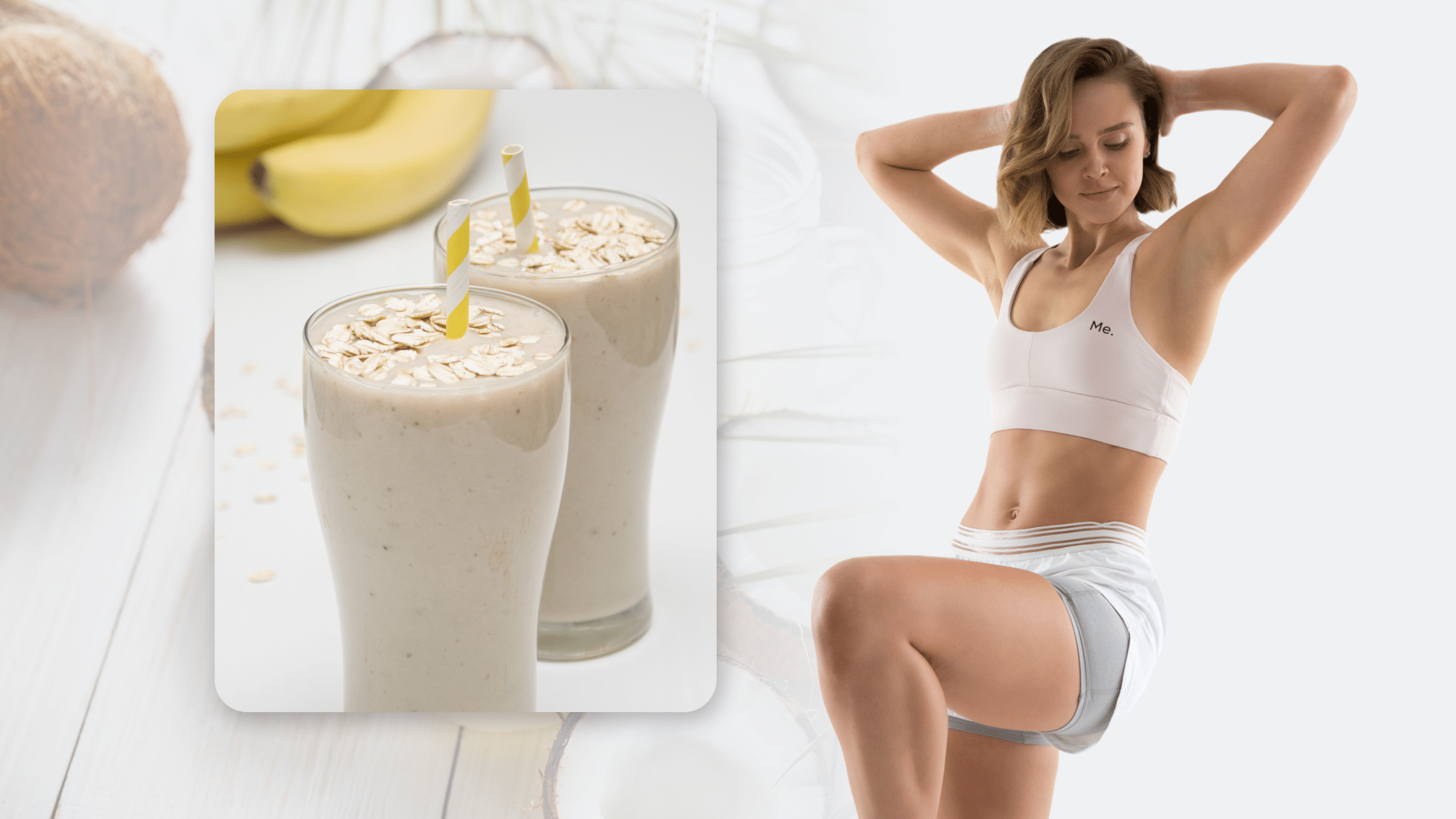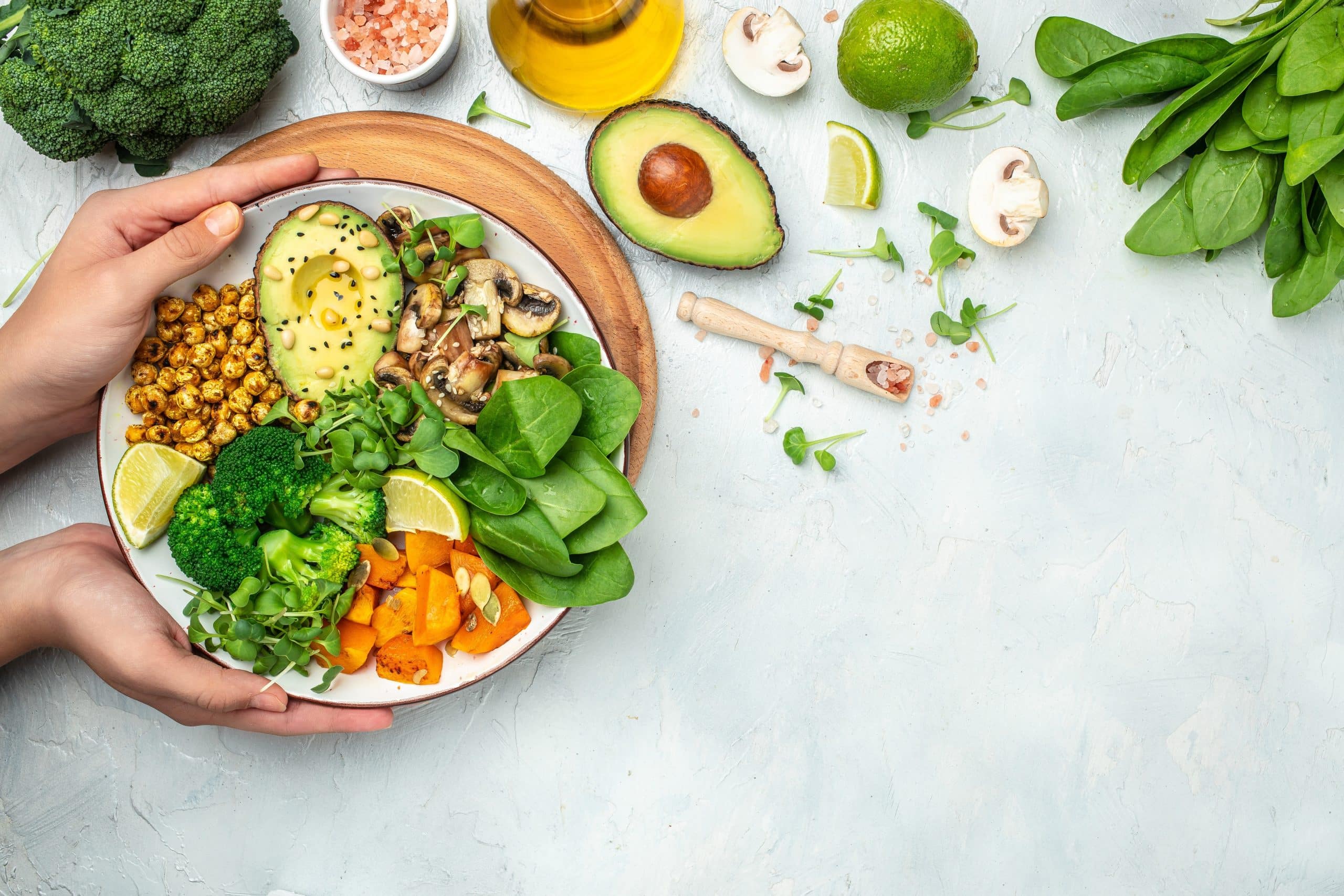Many of us have grown up knowing and drinking only cow’s milk. Whether it came in a bottle, packet, or straight from the farm, it was usually from a cow, or in some cases, a goat or camel, depending on where you lived. It wasn’t from a plant, seed, or nuts. However, today, when you walk through your local grocery store aisles, you may find multiple dairy alternatives that claim to be the secret to weight loss. Trying to figure out which type of milk is best for weight loss can be quite daunting if you don’t know the health benefits of these alternatives.
What Is the Best Milk Alternative for Weight Loss?
Milk alternative options appear limitless, and they’re often made from plants, nuts, or seeds. These alternatives are made by grinding a bean or nut, then adding water, flavors, vitamins, and minerals. The nutrients and amount of sugar in each plant-based alternative vary considerably based on how they are produced and what has been added. When picking the best foods and drinks for weight loss, it’s always best to look at the nutrition label of each pack and take note of the calories per serving.
Here are calories per cup (8 oz/244 g) for some popular dairy alternatives on the market today:
Calories Carbs Proteins Fats Calcium
| Pea milk | 80 | 0.5 g | 8 g | 4.5 g | 440 mg |
| Macadamia milk (10) | 50 | 1 g | 1 g | 5 g | 451 mg |
| Unsweetened cashew milk | 25 | 1.2 g | 0.8 g | 2.0 g | 450 mg |
| Unsweetened almond milk (3) | 36.6 | 1.42 g | 1.44 g | 2.68 g | 481 mg |
| Unsweetened hemp milk | 70 | 0 g | 2 g | 6 g | 300 mg |
| Unsweetened oat milk (15) | 120 | 16 g | 3 g | 5 g | 350 mg |
| Rice milk (18) | 115 | 22.4 g | 0.68 g | 2.37 g | 288 mg |
| Coconut milk (4) | 75.6 | 7.12 g | 0.512 g | 5.08 g | 459 mg |
| Soy milk (19) | 105 | 12 | 6.34 g | 3.59 g | 300 mg |
| Low-fat 1% | 102 | 12.2 g | 8.22 g | 2.37 g | 305 mg |
| Low-fat 2% | 122 | 11.7 g | 8.05 g | 4.83 g | 293 mg |
From the above list, it can be seen that cashew, almond, macadamia, and hemp seed milk have the lowest calories per glass (8 oz/244 ml).
Which Milk Alternative Is Best for Weight Loss?
Some of the above popular dairy alternatives have been touted as being great solutions for weight loss compared to dairy. But how true is this and how exactly do they affect your weight loss?
Cashew Milk and Weight Loss
As seen above, 1 cup of unsweetened commercial cashew milk contains just 25 calories. This is the lowest number on the above list. Due to its low calorie count, you can consume this dairy alternative every day to help you shed those extra pounds. However, you must ensure you don’t overdo it. After all, even healthy calories count, and consuming them in excess will lead to weight gain.
Coconut Milk Benefits for Weight Loss
With just 75 calories per cup, this is a great contender for the best milk alternative for weight loss. It has also been linked to having medium-chain triglycerides (MCTs), which may stimulate your metabolism. It has also been suggested that MCTs may increase insulin sensitivity, balance gut bacteria, and help control food intake throughout the day, factors that could lead to a reduction in waist size and overall body weight (5).
Hemp Milk
This alternative is made from hemp seeds that are low in calories and high in polyunsaturated fats. When it comes to losing weight, the amount and type of fat you consume are just as important as your calorie intake. Foods that are high in polyunsaturated fats are better than those that are high in saturated fats as they’re healthier for your heart and may promote weight loss (17).
Macadamia Milk
A cup of this plant-based milk has 55 calories, which is fantastic for anyone who wants to keep their calorie intake low.
Almond Milk and Weight Loss
Many people consider this option to be the best and healthiest milk for weight loss, and they’re not wrong. It’s the most popular dairy alternative today. Like many cow milk alternatives, it is usually fortified with vitamin D, calcium, and protein. It is also low in calories, which helps with weight loss. For faster weight loss results, choose the unsweetened version as it doesn’t have any unhealthy added sugars.
When it comes to the best milk alternative for weight loss, our pick is unsweetened almond milk as it is readily available wherever you are, has a better taste than some other kinds of milk, and is relatively low in calories.
BetterMe is your fast-track ticket to a long-lasting weight loss! Tailor your fitness journey and maximize your results with just a couple of swipes!
Oat Milk vs. Almond Milk for Weight Loss
To determine which of these two milks is the best for weight loss, we must first compare the nutritional value a cup of each provides.
244g of unsweetened almond milk has: calories: 36.6, fats: 3 g, proteins: 1 g, carbohydrates: 1 g, calcium: 481 mg, and dietary fiber 0 g (3), while 244 g of oat milk contains: calories: 120, fats: 5 g, proteins: 3 g, carbohydrates: 16 g, calcium: 350 mg, and dietary fiber 2 g (14).
The almond derivative is low in calories, but it is also low in all other nutrients compared to oat milk. In terms of calories alone, the almond option appears to be the best milk for weight loss as its competition has almost 3.3 times more calories per cup.
However, when you take a look at the nutrient count, there is little difference in the amount of protein and fats, but there is a significant difference in terms of carbohydrates. While the carbs found in oats are complex carbs that are essential to your diet and health, anyone who’s following a low-carb diet weight loss journey may want to keep an eye on their carb intake.
With these facts in mind, we suggest almond milk due to its very low number of calories per serving when it comes to oat milk vs. almond milk for weight loss. You can make either of these two options at home if they’re too expensive at the grocery store. However, it’s important to remember that the pre-packaged options are usually fortified with nutrients and minerals that will not be present in your homemade version.
Almond Milk vs. Whole Milk for Weight Loss: Which Is Better?
For anyone who is looking to cut their calorie intake for weight loss, choosing plant-based milk for their diet can be a step in the right direction. This is because when you compare the calories in these two options, whole milk has 4 times more (149 calories (13)) the amount of energy that is found in almond milk.
It’s important to note that whole milk has more protein, which is essential in weight loss, appetite suppression, and muscle growth. (20) However, depending on how many calories you consume and how much exercise you do each day, it may be a good idea to stick to the plant-based option.
Another factor to note is that not all almond milk is made the same; some brands have added sugars for shelf-life longevity and flavor. Make sure to always stop and read the ingredient label on your packet for nutrition facts to make sure you pick the healthiest version available. The easiest way to do this is to opt for an unsweetened almond drink instead of tastier options such as those with chocolate or vanilla flavors.
Should You Choose Low-Fat Milk?
Should you choose low-fat milk over whole milk and plant-based alternatives? If you’re looking to shed some extra weight and aren’t willing to go for plant-based alternatives, then low-fat milk could be the next best thing. Giving up full-fat milk for a low-fat option could help you lose weight and it may lower the risk of heart disease.
The reason behind this is that whole milk and whole-fat dairy options primarily contain saturated fat (7). Saturated fats are fats that have all single bonds between their molecules. These bonds are “saturated” with hydrogen molecules, which tend to solidify at room temperature. They can be found in other foods such as cheese, butter, icecream, and high-fat cuts of meat (8). A high intake of saturated fats is associated with risk factors for heart disease, such as increased low-density lipoprotein (LDL), which is sometimes known as “bad” cholesterol.
Low-fat milk is also a great way to get all the minerals and nutrients found in whole milk without extra calories. One cup of low-fat 1% milk has 102 cals, carbs: 12.2 g, fats: 2.37 g, proteins: 8.22 g, and calcium: 305 g (12). Low-fat milk is still higher in calories than most plant, nut, and seed options, but it’s also higher in protein.
Read more: Raw Milk Benefits: Will the Advantages Outweigh the Potential Risks?
Is Oat Milk Good for Weight Loss?
Due to its high number of calories, it may not be the best option for weight loss. Instead of oat milk, it’s best to opt for other plant-based options with a lower calorie count. Despite its high-calorie count, oat milk has many other benefits, including (15):
- It tastes better than other plant, nut, and seed-based alternatives
- It has a smaller environmental impact than almond milk
- It may help combat cancer
- It helps lower levels of LDL “bad” cholesterol in your body
- It’s an excellent alternative for anyone who has a casein allergy or is lactose intolerant
- It’s higher in protein than many milk alternatives, which helps in muscle growth and repair while keeping your hair and nails healthy
- It has calcium, which is essential for bone health and macronutrients such as folate, which make red and white blood cells in the bone marrow
When it comes to which milk is best for weight loss, despite its many other health benefits, oat milk falls short due to its high calorie content. It’s best to leave this option for highly active people who aren’t worried about losing weight or for those who can work off all the extra calories at the gym.
If you’ve mustered up the courage to crush your weight loss goal, let Betterme take the sting out of this demanding process. Our app will help you restructure your habits, remold your life and crank up your fitness results!
Which Type of Milk Is Healthiest?
Most plant-based milks, such as hemp, oat, flax, coconut, almond, and soy are considered to be among the healthiest options. That being said, this doesn’t mean you should ignore dairy and never drink it again. Unless you have lactose intolerance or a casein allergy, this option is perfectly okay. The trick is to watch your intake. Instead of drinking whole milk every day of the week, you can alternate it with plant-based or low-fat milk options.
Cow’s milk is incredibly nutritious for both children and adults as it’s naturally rich in calcium and B vitamins (20). It’s also important to note that while almond milk is great for our bodies and is a fantastic low-calorie option, it isn’t considered an environmentally sustainable crop. Its production requires a great deal of water and pesticide use, which is quickly causing long-lasting and devastating effects on the environment in drought-stricken California, which is where over 80% of the world’s almonds are grown (2).
Is Plant-based Milk Healthier?
In terms of nutrients, it depends on what choice you make. Some alternatives contain virtually the same amount of vitamins and minerals as cow’s milk, while others fall far shorter (16). If your desired option doesn’t provide you with the necessary nutrients, i.e. calcium and vitamin D, you can always get them from fruits and vegetables, and in the case of Vitamin D, from exposure to the sun.
Read more: Whey Vs Casein: Your Ultimate Guide to Milk-Derived Protein Powders
FAQs
How often should you drink milk for weight loss?
When it comes to plant-based options, there’s no specific recommendation regarding how much or how often you should drink these alternatives. As most of these options are relatively low in calories and have little to no saturated fats, you can safely drink several cups (possibly up to 3 cups) a day.
However, the most important factor to note is whether your intake of calories from milk fits into your total caloric requirement for the day. You should always use a reputable calorie-counting app to keep track of your calorie, carb, fat, and protein intake for the day. In this way, you can safely drink your plant, nut, or seed milk without jeopardizing your energy intake and weight loss goals.
When is the best time to drink milk for weight loss?
It can generally be consumed at any time of the day and even at night to help lull you to sleep. However, in order to see the maximum benefits, it’s best to drink a glass after a workout to help replenish your body with protein, which helps with muscle repair and growth (9).
What are the benefits of drinking milk for weight loss?
Most kinds of milk, plant-based or otherwise, contain protein. When consumed, protein-rich foods affect the hunger hormone ghrelin by reducing it. When this hormone is suppressed, you’re less likely to snack or overeat, thereby keeping your calorie intake low.
Protein supports muscle growth, which boosts your metabolism. A pound of muscle burns six to seven calories a day at rest, which is three times more than that which is burned by a pound of fat (21). This means that the more muscle you have, the more calories you expend, even when you’re not working out.
Low-fat and plant-based milk options are also low in calories, which may help you stay in a daily calorie deficit. This is a major factor that leads to weight loss.
The Bottom Line: Which Milk Is Best for Weight Loss?
Plant-based options such as cashew, almond, hemp, flax, soy, coconut, and macadamia milk appear to be the best milk alternatives for weight loss. Not only are they dairy and lactose-free, they’re also low in calories and have no saturated fats.
When searching for which alternative milk is best for weight loss, the most important thing is to read the ingredient label and nutrition facts, as an alternative doesn’t always mean that it will be healthy. Many brands and companies add sugars to their products to ensure they have a longer shelf life, but added sugars will only serve to promote weight gain.
No matter what option you choose to help you with your weight loss journey, make sure you always track your calories to make sure you remain within your recommended caloric intake for the day. In addition, milk alone will not help you shed unwanted pounds. An overall healthy diet that provides a slight caloric deficit every day is far more important than your choice of milk.
You should also exercise for at least 30 minutes, five to six times a week. If you’re unsure of which alternative option will be best for you, you should speak to a doctor or dietitian, who can help you make a good decision.
DISCLAIMER:
This article is intended for general informational purposes only and does not serve to address individual circumstances. It is not a substitute for professional advice or help and should not be relied on for making any kind of decision-making. Any action taken as a direct or indirect result of the information in this article is entirely at your own risk and is your sole responsibility.
BetterMe, its content staff, and its medical advisors accept no responsibility for inaccuracies, errors, misstatements, inconsistencies, or omissions and specifically disclaim any liability, loss or risk, personal, professional or otherwise, which may be incurred as a consequence, directly or indirectly, of the use and/or application of any content.
You should always seek the advice of your physician or other qualified health provider with any questions you may have regarding a medical condition or your specific situation. Never disregard professional medical advice or delay seeking it because of BetterMe content. If you suspect or think you may have a medical emergency, call your doctor.
SOURCES:
- Almond, hemp, oat, soy, and cow’s milk: Which is best? (2019, medicalnewstoday.com)
- Almond Milk is Taking a Toll on the Environment (2018, sustainability.ucsf.edu)
- Almond milk, unsweetened (2023, fdc.nal.usda.gov)
- Coconut milk (2020, fdc.nal.usda.gov)
- Applications of Medium-Chain Triglycerides in Foods (2022, ncbi.nlm.nih.gov)
- Healthiest Milk to Drink if You Want to Lose Weight (2019, livestrong.com)
- Is low-fat or full-fat the better choice for dairy products? (2018, health.harvard.edu)
- Saturated Fat (2021, heart.org)
- Cow’s milk as a post-exercise recovery drink: implications for performance and health (2019, pubmed.ncbi.nlm.nih.gov)
- MACADAMIA MILK (2019, fdc.nal.usda.gov)
- Milk Mysteries: What’s in Your Glass? (2018, webd.com)
- Milk, low fat (1%) (2020, fdc.nal.usda.gov)
- Milk, whole (2020, fdc.nal.usda.gov)
- Oat Milk: Nutrition, Benefits, and How to Make It (2019, healthline.com)
- THE ORIGINAL OAT-MILK (2019, fdc.nal.usda.gov)
- Plant milk or cow’s milk: Which is better for you? (2020, health.harvard.edu)
- Polyunsaturated Fat Health Benefits (2019, verywellfit.com)
- Rice milk (2020, fdc.nal.usda.gov)
- Soy milk (2020, fdc.nal.usda.gov)
- Milk, whole, 3.25% milkfat, with added vitamin D (2019, fdc.nal.usda.gov)
- The Amount of Calories Muscles Burn (2020, verywellfit.com)
- Soy Products Ameliorate Obesity-Related Anthropometric Indicators in Overweight or Obese Asian and Non-Menopausal Women: A Meta-Analysis of Randomized Controlled Trials (2019, mdpi.com)









